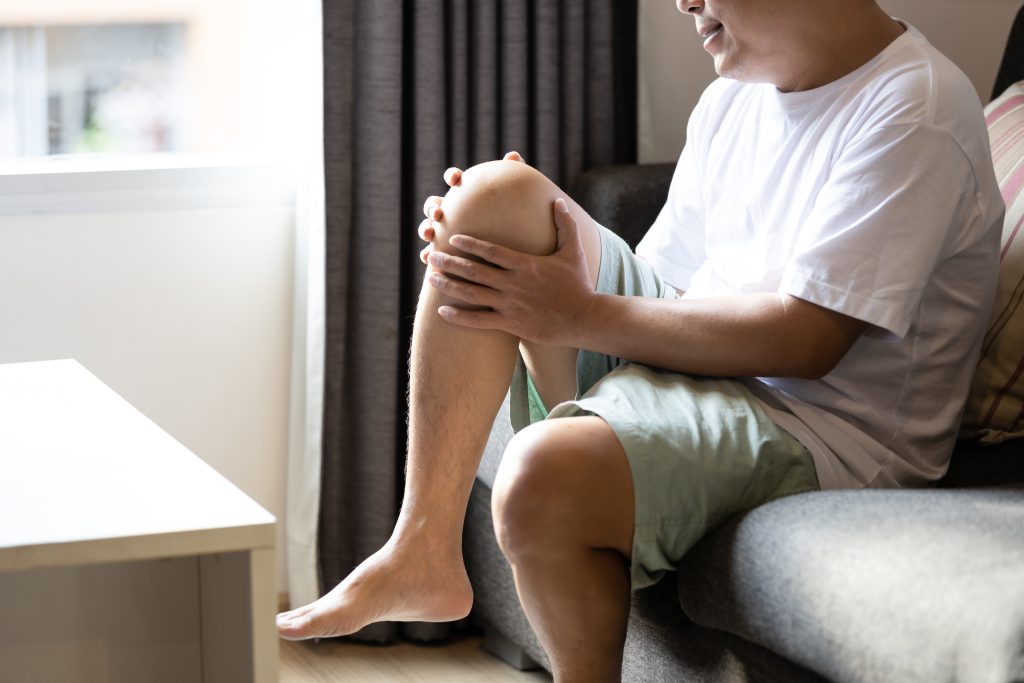Your body produces a symphony of sounds throughout the day—some intentional, others surprisingly loud, and a few that make you wonder if you’re okay inside. From stomach rumbles during quiet meetings to the satisfying pop of cracking knuckles, these noises are usually harmless quirks of human anatomy.
One joint that can start making a strange sound with specific movements is the knee. Unfortunately, that grinding, popping, or clicking noise can be alarming, especially if it’s sudden, loud, or happening all the time.
The good news? Most knee sounds are completely normal and don’t indicate injury or disease. Understanding what causes these noises—and when they might warrant professional evaluation—can help put your mind at ease and guide you toward the right care if needed.
Types of knee sounds
Noises from the knee are as unique as every person who experiences them. In different motions and for different people, your knees can make sounds like:
- Crunching
- Popping
- Clicking
- Cracking
- Creaking
Causes of knee crunching or other sounds
Most causes of knee noises are benign, meaning they aren’t harmful and aren’t caused by a harmful underlying condition. However, understanding the possible causes of these noises can help you understand whether you should keep paying attention to the sounds your knees are making or if you can fully ignore them for now.
Gas bubbles in joint fluid
One of the most common causes of knee sounds involves tiny gas bubbles in your synovial fluid—the lubricating liquid inside your joint capsule. When you move your knee in certain ways, these bubbles can collapse or form rapidly, creating popping or cracking sounds. This noise, called crepitus, is also what happens when you crack your knuckles.
Ligaments and tendons moving
The ligaments and tendons around your knee joint sometimes snap back into place after being stretched or displaced slightly during movement. This repositioning can create clicking or popping sounds and sensations, particularly if these structures move over bony prominences around your knee.
Cartilage irregularities
Your knee cartilage should ideally provide smooth, gliding surfaces for movement. However, minor irregularities in cartilage texture—whether due to normal wear, previous injuries, or natural genetic variations—can cause grinding or crunching sounds as bones move against each other.
Muscle imbalances
When the muscles around your knee don’t work in perfect coordination, it can affect how your kneecap tracks during movement. This altered movement pattern might contribute to various knee sounds, particularly clicking or grinding noises.
Previous injuries
Old injuries, even minor ones you might not remember, can leave small changes in your joint structure. Scar tissue, slightly altered bone surfaces, or changes in how your joint components align can all contribute to knee sounds.
Normal aging process
As we age, our joint surfaces naturally change. Cartilage might thin slightly, and the joint surfaces might not be as perfectly smooth as they once were. These normal changes can result in more frequent joint sounds and sensations.
Temporary inflammation
Sometimes knee sounds accompany mild, temporary inflammation from increased activity, minor strains, or even changes in weather. This inflammation might alter how joint surfaces interact, creating temporary changes in the sounds your knee makes.
Do I need to see a doctor for knee popping or crunching?
Most of the time, knee sounds don’t require medical evaluation. Many people live with knee clicking, popping, or occasional crunching without ever developing problems or needing treatment.
However, certain situations warrant a little more caution. You should consider seeing a healthcare provider if your knee sounds are accompanied by pain, swelling, stiffness, or a feeling that your knee might give out.
Additionally, if the sounds have changed significantly in frequency or character, or if they’re accompanied by decreased range of motion, professional evaluation can help determine whether treatment might be beneficial.
When to see a physical therapist
Seeing a physical therapist is often a great starting point people concerned about knee sounds. Physical therapists are often more accessible than primary care physicians, with shorter wait times for appointments and specialized expertise in movement-related issues.
A physical therapist can perform a detailed movement assessment to determine whether your knee sounds relate to muscle imbalances, movement patterns, or other factors that respond well to targeted exercises and manual therapy. They can also provide education about your specific situation, which often helps reduce anxiety about concerning sounds or sensations.
Physical therapy can be particularly valuable if your knee sounds are related to muscle weakness, poor movement patterns, or minor tracking issues with your kneecap. Through specific exercises and hands-on techniques, physical therapists can often reduce or eliminate problematic knee sounds while improving your overall joint function.
Even if your knee sounds don’t require treatment, a physical therapist can provide strategies for maintaining healthy joint function and preventing future problems. They can also teach you warning signs to watch for and help you develop a plan for staying active while protecting your knee health.
Knee pain and injury prevention in Sacramento
While most knee sounds are harmless, getting an evaluation by a PT ensures you won’t be caught off guard by changes in the future.
At Alves & Martinez Physical Therapy, our experienced team specializes in evaluating and treating knee conditions and injuries of all types. Whether you’re dealing with new sounds that worry you, knee discomfort that’s affecting your activities, or you simply want professional reassurance about your joint health, we’re here to help. Get the conversation started by calling one of our clinics or by requesting an appointment online today!
